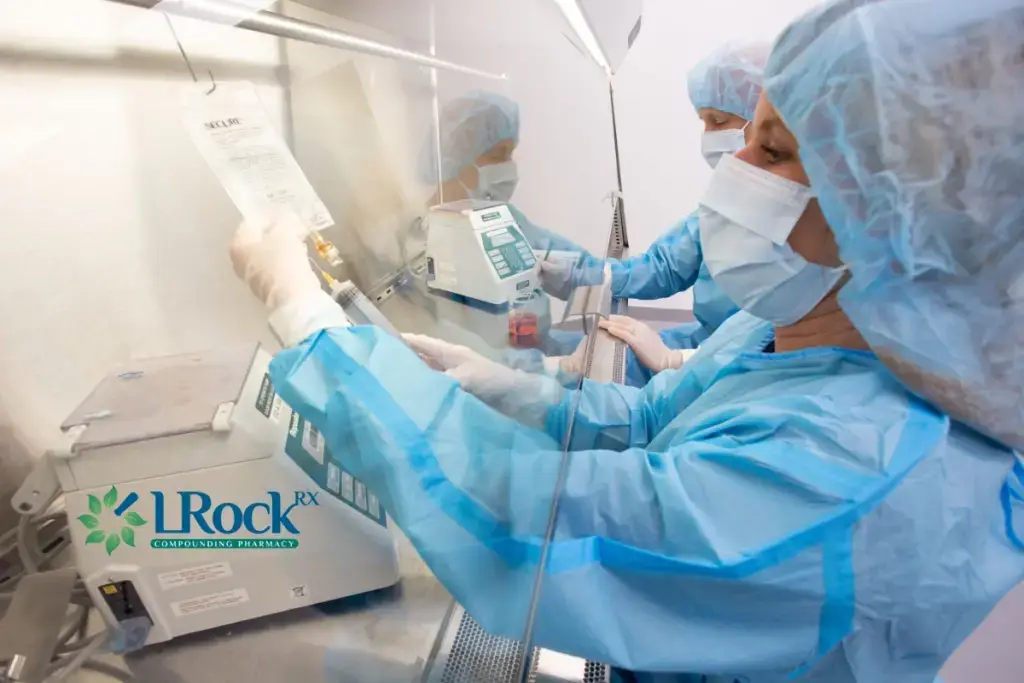Understanding Sterile Compounding
What is Sterile Compounding?
Sterile compounding involves preparing medications in a completely sterile environment to prevent contamination. This process is crucial for creating medications that must be free from any bacteria, viruses, fungi, and other pollutants, such as injections, ophthalmic solutions, and other formulations intended for sterile body cavities.
Sterile compounds are prepared in a strictly controlled environment, adhering to rigorous standards set by regulatory agencies such as the USP (United States Pharmacopeia) and the FDA (Food and Drug Administration). Our pharmacy utilizes advanced technology and techniques in state-of-the-art clean rooms and laminar airflow workbenches designed specifically for this purpose.
How Does Sterile Compounding Differ from Non-Sterile Compounding?
Environmental Controls
Sterile compounding requires a clean room environment that meets specific air quality and cleanliness standards. Non-sterile compounding does not require a clean room, though it still follows strict guidelines for cleanliness and safety to prevent chemical contamination.
Equipment and Techniques
In sterile compounding, all equipment, such as laminar airflow hoods and specialized sterilizing equipment, is designed to maintain a contamination-free environment. Techniques used by pharmacists also include specific methods for ensuring sterility, such as using autoclaves for sterilization. Non-sterile compounding uses equipment that ensures the precise mixing and dosing of ingredients but does not necessarily sterilize them.
Training and Certification
Pharmacists and technicians involved in sterile compounding undergo specialized training and certification to handle sterile techniques safely. This training is more extensive and specialized compared to non-sterile compounding, focusing heavily on aseptic techniques and contamination control.
Types of Medications Compounded
Sterile compounding is used primarily for medications that must be administered in areas of the body where even the smallest infection could be serious, such as the bloodstream, eyes, or spinal cord areas. Non-sterile compounding is typically used for medications that are administered orally or topically, where a sterile environment is not crucial.
Regulatory Oversight
Sterile compounding pharmacies face more stringent regulatory scrutiny compared to non-sterile compounding pharmacies due to the higher risks involved with sterile compounding. Compliance with guidelines such as USP and state pharmacy board regulations is critical to ensure patient safety.
Why Choose LRockRx Sterile Compounding Services?
Our sterile compounding services are designed to meet the needs of patients requiring injectables, ophthalmic preparations, and other sterile medications. We provide:
- Assurance of sterility and safety, with all preparations meeting rigorous testing and quality checks.
- Customized solutions for allergies, sensitivities, or specific patient needs that cannot be met by commercially available products.
- Coordination with healthcare providers to ensure that formulations are precisely tailored to treatment requirements.
Whether you need a sterile injection for pain management or a custom ophthalmic solution, our skilled team is equipped to provide high-quality compounded medications. Contact us today to learn more about our sterile compounding capabilities and how we can assist in your healthcare regimen.

